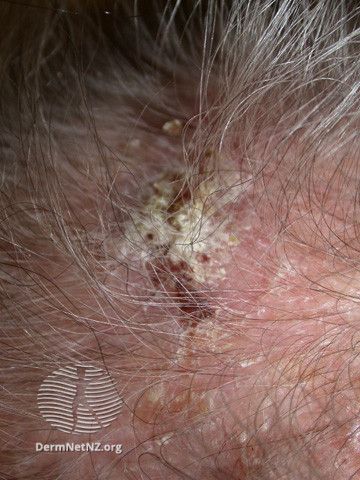
- General Dermatology
- Eczema
- Alopecia
- Aesthetics
- Vitiligo
- COVID-19
- Actinic Keratosis
- Precision Medicine and Biologics
- Rare Disease
- Wound Care
- Rosacea
- Psoriasis
- Psoriatic Arthritis
- Atopic Dermatitis
- Melasma
- NP and PA
- Skin Cancer
- Hidradenitis Suppurativa
- Drug Watch
- Pigmentary Disorders
- Acne
- Pediatric Dermatology
- Practice Management
Targeted Social Media Recruitment Efficient, Effective in Trial for Low-Grade Actinic Keratosis
Online patient recruitment methods were effective in a proof-of-concept trial involving patients with low-grade AK.
A targeted social media effort was effective and efficient in accelerating patient recruitment for a randomized controlled clinical trial, according to a study published in Contemporary Clinical Trials Communication.
According to study authors Ortner et al, approximately 70% of clinical trails fail to meet their enrollment target and timeline, with recruitment serving as the single largest cause of trial delays. This, coupled with the growing role of social media, led researchers to explore the potential of a digital campaign to effectively recruit patients for a randomized, controlled phase 1/2a clinical trial of low-grade actinic keratosis (AK).
The Copenhagen Actinic Keratosis Study (COAKS), a 12-week phase I/IIa clinical trial, aimed to enroll 60 participants with multiple AK lesions with Olsen grade 1 or 2.
The recruitment process involved targeted social media campaigns on Facebook and Instagram, utilizing online advertisements to attract potential candidates. The online recruitment campaign, costing $14,285, was designed over 1.5 months. The virtual eligibility review included the assessment of patient-provided photos by a team of remote dermatologists.
Candidates meeting the criteria underwent an in-clinic examination. The recruitment efficiency was evaluated using social media metrics and compared to data from other studies on AK.
A total of 837 users signed up for the study, representing 3% of advertisement clicks. Out of 556 subjects who filled in the demographic questionnaire, 401 were willing to share photos of their self-diagnosed AK lesions, and 140 were considered eligible by online dermatologists.
The main reasons for exclusion were lack of AK diagnosis and smartphones incapable of supporting the web-based study application. The in-clinic eligibility and enrollment process showed a conversion rate of 10.8%, with higher age and male gender positively influencing the conversion rate.
Of the 140 eligible participants, 115 were scheduled for site visits, and 90 visits were conducted to reach the goal of 60 randomized patients. The in-clinic enrollment success rate was 66.6%, with screen failure attributed to no or insufficient AK lesions or undergoing AK treatment.
The study achieved a higher recruitment efficiency compared to existing literature, being 9 times more efficient. The retention rate was 90%, excluding withdrawals due to side effects or protocol breach, aligning with the average retention rate reported in other studies. The study successfully enrolled 60 patients in 53 days, showcasing the effectiveness of the digital recruitment approach.
Study limitations, as noted by researchers, included the study's age cut-off and the addition of a language filter.
"Combining targeted social media advertising with remote pre-eligibility assessments using patient-obtained smartphone photographs proved to be an effective way to recruit patients online for an interventional RCT on a new topical treatment for AK," according to Ortner et al. "Our study indicates that the use of digital solutions may be a suitable alternative to conventional recruitment methods in research settings where time is of the essence. Further investigations of online recruitment are needed to confirm the potential scalability of our approach and its translatability to areas outside of dermatology."
Reference
Ortner VK, Zibert JR, Budnik O, et al. Accelerating patient recruitment using social media: Early adopter experience from a good clinical practice-monitored randomized controlled phase I/IIa clinical trial on actinic keratosis. Contemp Clin Trials Commun. December 20, 2023. Accessed January 23, 2024. https://doi.org/10.1016/j.conctc.2023.101245
2 Commerce Drive
Cranbury, NJ 08512
All rights reserved.
